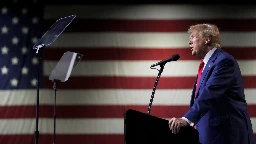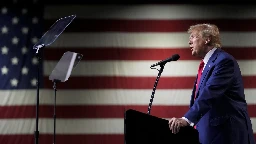Donald Trump banned from Colorado ballot in historic ruling by state’s Supreme Court
Donald Trump banned from Colorado ballot in historic ruling by state’s Supreme Court

The Colorado Supreme Court is removing former President Donald Trump from the 2024 primary ballot under the Constitution's insurrection clause.

Read the full decision.

